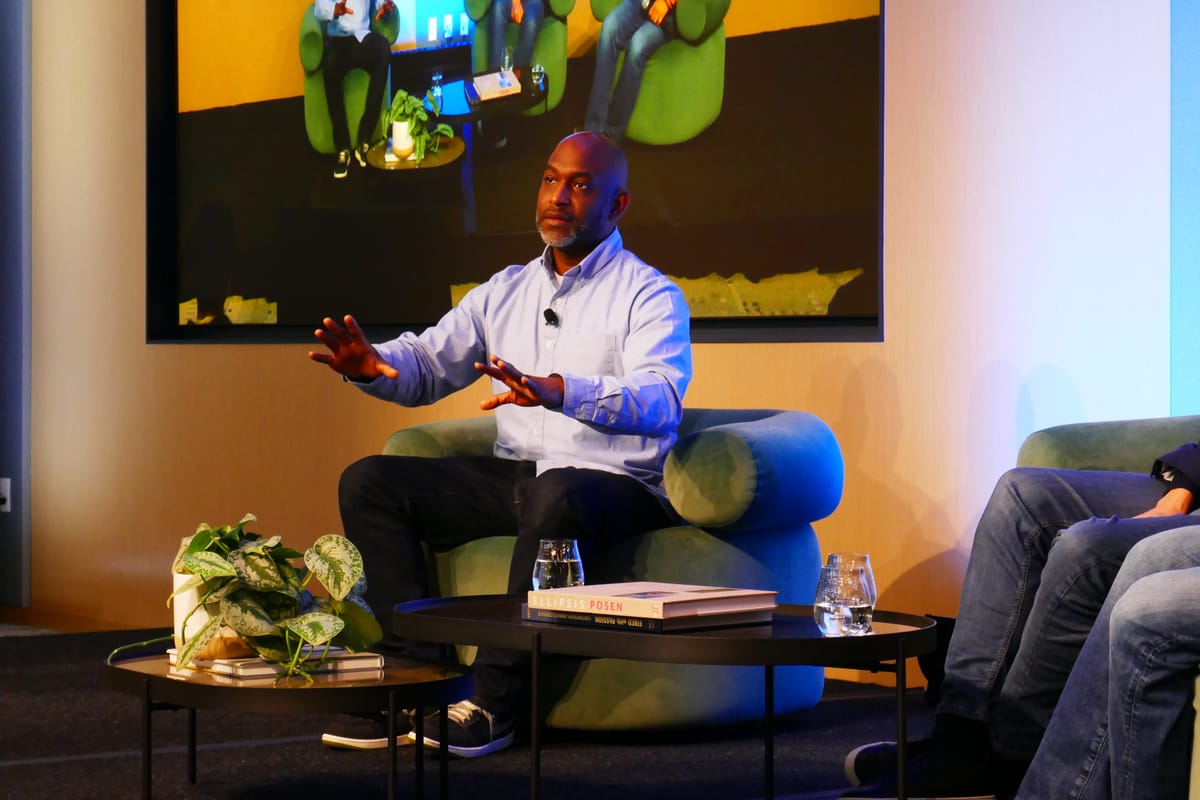
Technologists should feel “dirty” for falling for AI hype, according to Google veteran Kelsey Hightower.
Hightower has a storied background in the DevOps and Cloud Native space, with prominent roles at Puppet, CoreOS, and working on Kubernetes at Google, and in the broader communities around those technologies.
He “retired” from Google in 2023, saying he’d spent a quarter of a century learning how to work, and now planned to “spend the rest of my life learning how to live.”
Maybe he’s learned faster than he thought, as he’s been tempted to be a non-exec director at UK cloud services company, Civo. He spoke to The Stack at its Navigate conference in San Francisco.
Hightower has bought into the UK-based firm’s strategy, including its FlexCore private cloud platform, a four dual CPU server 2 U chassis running Civo’s cloud software stack which customers can buy and run themselves.
He argued this was a way of undercutting the ever-increasing dominance of the hyperscalers. He told the audience at the event that most organizations had already moved to the cloud, so “The only way hyperscalers can make money is to keep increasing their prices for their existing customers.”
At the same time, he told The Stack, it wasn’t in hyperscalers’ interests to offer smaller countries, or enterprises, the “ingredients” to operate their own cloud-like infrastructure, he said. From their perspective, the cloud model only scales in one direction - up.
While projects like OpenStack had tried to replicate the cloud, he continued, it was largely driven by people who hadn’t actually worked at a hyperscaler themselves. So, while it technically worked, organizations and the community were still left to fill the gaps themselves.
Owner operators for the cloud?
A platform like Flexcore allowed non hyperscalers to set up a cloud experience on an “owner operator” basis, he said. “What happens if you're a small country where you can't necessarily promise enough revenue for the hyperscaler to show up?”
The situation is further complicated by current geopolitics, with tariff barriers and export restrictions, and thorny issues of sovereignty. “If you have no leverage, you don't tend to do well in those negotiations,” he said. “That's just human history.”
“We're not talking like changing fundamentally what cloud is. We're just saying, wouldn't it be easy to access the fundamentals wherever you want.”
Flexcore also offers GPU support with an additional bolt-on system, Civo CEO Mark Boost explained, meaning users could do model training where they wanted – not in hyperscalers’ datacentres.
However, when it comes to AI, Hightower said he was “consciously opting out” of that particular hype wave. He added that he had been “really happy” to see Deep Seek emerge and potentially prick the scale up AI bubble.
“Boy, if they found an efficiency cycle that just pulls the plug on the mania. Yeah... Why are you spending $50 billion on what they did for less than $10 million? Does it make sense anymore?”
More broadly, Hightower questioned many of the assumptions behind the AI hype, including 2025 being the year of agentic AI.
“We've been giving data to software since the beginning. The point of software is to manipulate data, isn't it? So, an AI agent is software. Its only purpose is to deal with the data. So, we're back to square one.”
As for RAG, he said, “You say RAG, I say cache … Do you not feel dirty when you use buzz words like this, knowing that there's an existing thing that is exactly that same thing?”
There was a need for pragmatism given the corporate confusion AI is causing. “The security people don't know what their role is, because everybody wants to move fast and not miss out on innovation. The operations people have no idea what their role is.”
AI? It thinks inside the box
But the fact is, Hightower said, that “the fundamentals are roughly the same, your job still applies to this world too.”
He cited the example of using Gen AI to generate FAQs for an organization or set a return policy. “Someone's like, I need an LLM to infer what our return policy is from all the previous returns from the last 70 years?” Or, he suggested, “We can decide in this room what our return policy should be and then honour it.”
AI simply thought “inside the box”, he said, based on the human data that had been sucked into it. He suggested that AI’s ability to hallucinate was perhaps its best power. “We hallucinate, we dream, we imagine, and we aspire to do things we’ve never done before, and that gives us hope to try.”
This all meant that engineers and technologists should not fret too much about their roles in the future but focus on the fundamentals – as they need to do during every hype wave.
During the peak of cloud native he said, it felt like everyone was running containers. But “I was like, everybody ain't running no containers. Less than 1% of the people are probably running containers. And then when you go in there, you got more Windows servers than containers…it doesn't actually change that fast.”
The same applied to the idea that sysadmins would become extinct due to automation. This ignored the fact that the “backlog” in most companies was interminably long. “The truth is it doesn’t change that fast.”
So, Hightower’s advice to younger engineers and technologists was “Pay attention to the present, and you'll definitely see what the future will look like. I've never seen it work the other way.”
